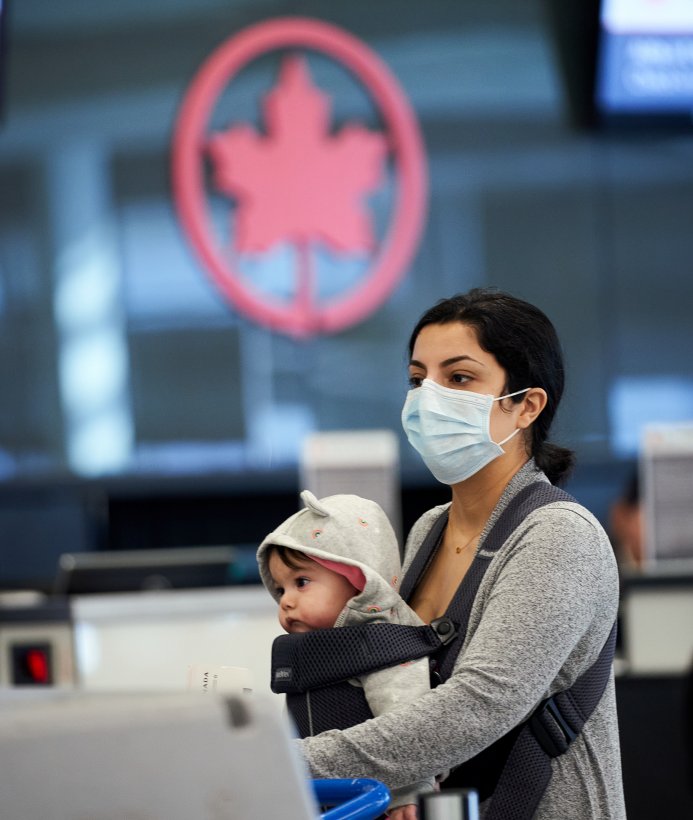Canada expanded its list of countries subject to travel restrictions over the Omicron variant of COVID-19 to Nigeria, Malawi and Egypt on Tuesday.
File Photo by Andre Pichette/EPA-EFE
Dec. 1 (UPI) — Canada has expanded its list of countries it is restricting travel from due to the new Omicron variant of COVID-19 to Nigeria, Malawi and Egypt, increasing the number of nations affected by the ban to 10.
The three African nations were added to the list of seven that Ottawa announced on Friday in response to a new variant of the coronavirus having been detected in the region.
The restriction bars foreign nationals who have visited any of those countries within 14 days entry to Canada.
Health Minister Jean-Yves Duclos announced the list’s expansion during a press conference Tuesday, stating Canadian citizens and permanent residents who have transited through those countries two weeks prior to returning home will have to be tested upon arrival at the airport and quarantined until their results are known.
Duclos also said starting Tuesday that all air travelers to Canada from countries aside from the United States will be tested for COVID-19 at the airport whether they are vaccinated or not and must self-isolate until their results are returned.
“We are taking quick action at our borders to mitigate travel-related importations of the Omicron variant,” Duclos said in a statement. “While our monitoring systems are working well, we now know that the Omicron variant is present in Canada.
“We need to remain vigilant in our own actions. Vaccination and simple public health measures such as masking and limiting the number of persons we interact with slow down transmission, reduce hospitalization and death and protect our health systems from being overwhelmed,” he said.
Canada confirmed North America’s first Omicron infection Sunday, reporting two cases in the capital Ottawa in individuals with recent travel from Nigeria.
Since then, the provinces of British Colombia, Alberta and Quebec have reported cases of Omicron for a total of seven infections.
The announcement was made as the World Health Organization advised some people, including those over 60 years of age, against international travel while calling on nations to take an evidence- and risk-based approach to travel restrictions.
The variant was first reported to the WHO by South Africa on Nov. 24, prompting 56 countries to impose travel restrictions, including the United States, which banned travel from eight African nations.
Officials with the international health body have warned against blanket travel bans, saying they don’t stop the spread of the disease while putting a heavy burden on lives and livelihoods. The travel bans potentially also impact global health efforts by disincentivizing countries to share information about outbreaks, it said.

